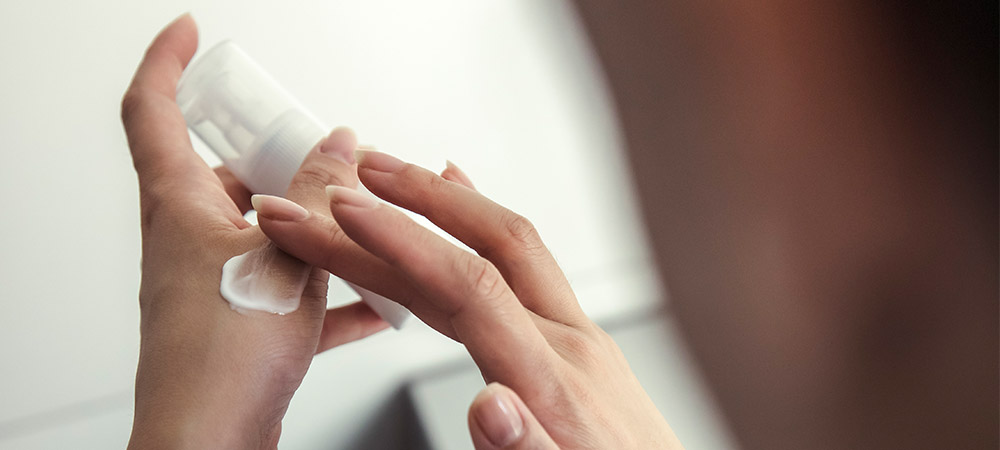Eczema: Avoiding Constant Need for Skin Creams

A previous blog compared symptom relief and disease modification in the treatment of sinusitis. That story seems to repeat itself within a long list of allergic conditions that have an underlying allergy component – eczema, or atopic dermatitis, is one of them.
Eczema can occur at any age, but it’s most common in children; impacting nearly 20% of the American population. It’s itchy skin that can be severe, discolored patches of skin, and raw skin from itching. There are a few different options for stopping the scratching; some relieve symptoms, and some modify the disease.
Symptom relief
Prescriptions
There are several eczema medications available that aim to lower eczema flare ups. Oral and injectable medications are often prescribed by doctors to control the physical symptoms, but they aren’t able to manipulate the underlying issue causing the eczema. The cost of these prescriptions is often a big burden for patients to bear.
Over the counter (OTC) skin cream
There are OTC skin creams also aimed at healing the skin. But, they only go that far. Whenever an eczema flare up occurs, the eczema cream will be needed. It’s a continual cycle.
DIY relief
Take a trip down the lotion aisle and you’ll find different varieties that claim to help with eczema. Certain bath products – like soaps and bath bombs – also may help calm symptoms. There are even do-it-yourself methods, including milk baths and essential oils advertised online. These products all may cover itching, but the benefit doesn’t go much further.
Disease modification
Eczema is often considered a type of skin allergy or sensitivity, and by identifying the underlying allergies and building tolerance to them, flare ups can be reduced or eliminated.
Allergy testing and treatment
Being tested for food and environmental allergies can determine what allergens are causing you issues. Then, you can move on to treatment. Immunotherapy is the only option for treating the cause of allergy – and custom sublingual immunotherapy, or allergy drops, is a safe and effective option.
Over time, tolerance is built to your identified problem allergens, and symptoms decrease and in many cases go away all together. Unlike some other allergy treatments, allergy drops following the La Crosse Method™ Protocol are safe for treating children. Children with eczema are the perfect example of kids who may need allergy treatment, because of the impending allergic march.
Untreated, eczema can remain a lifelong condition and progress into other allergic disease, like allergic rhinitis, food allergies, and asthma. By taking control of problem allergies in infancy or childhood, the likelihood of this progression, referred to as the allergic or atopic march, is much less.
Here lies another example of taking control over allergies, rather than just masking the symptoms. If you’re ready to find a solution to your chronic allergic conditions, find a provider near you offering allergy drops as a treatment option.



